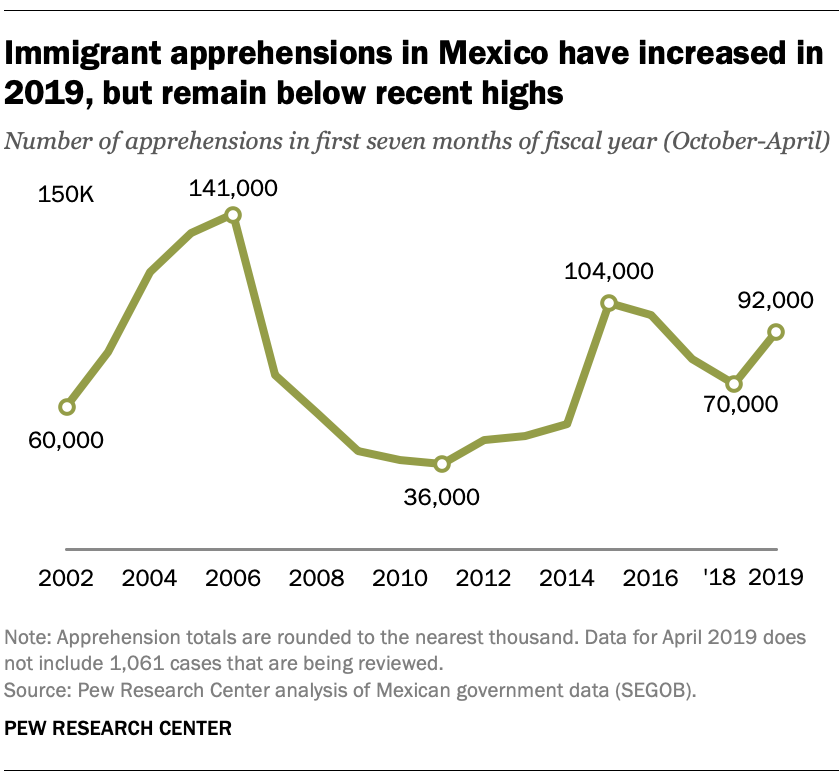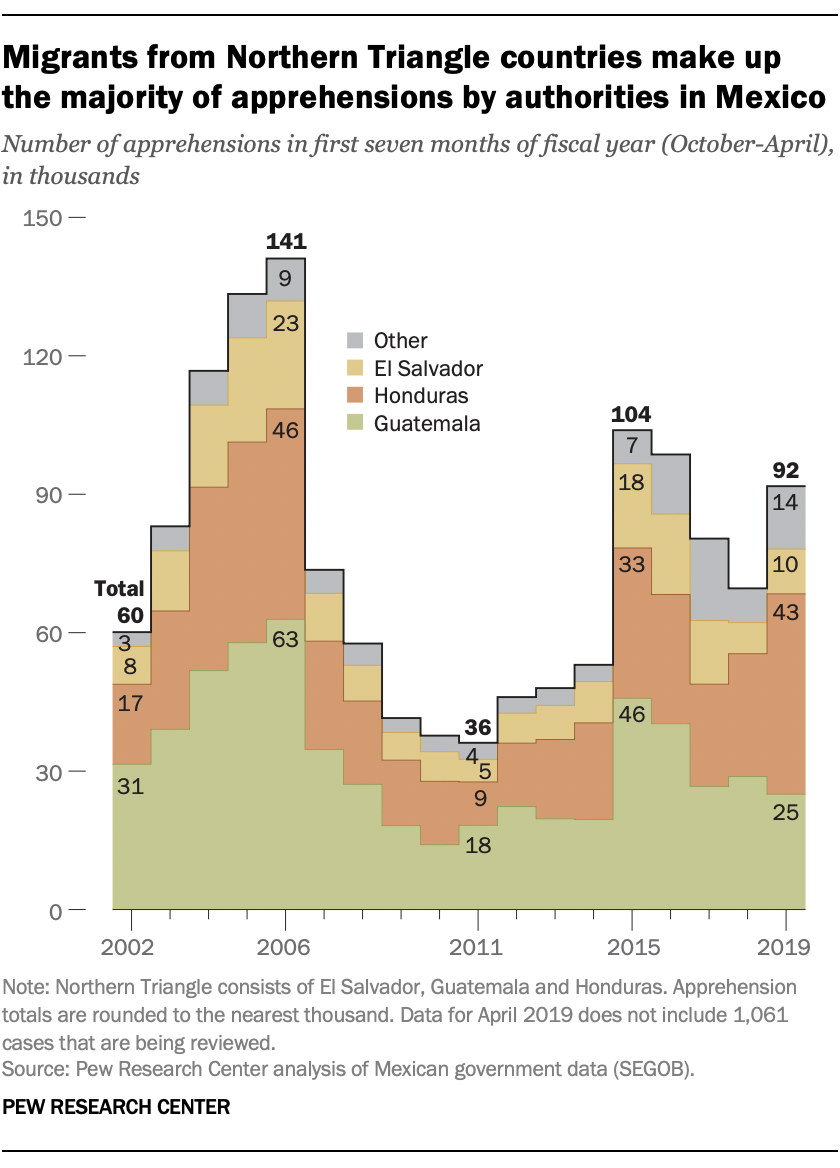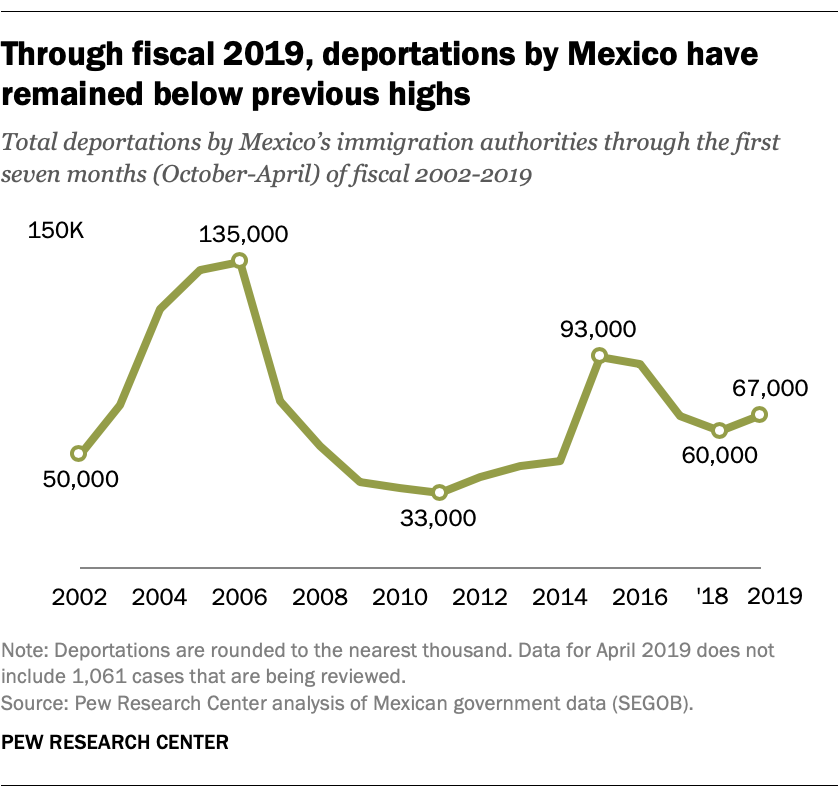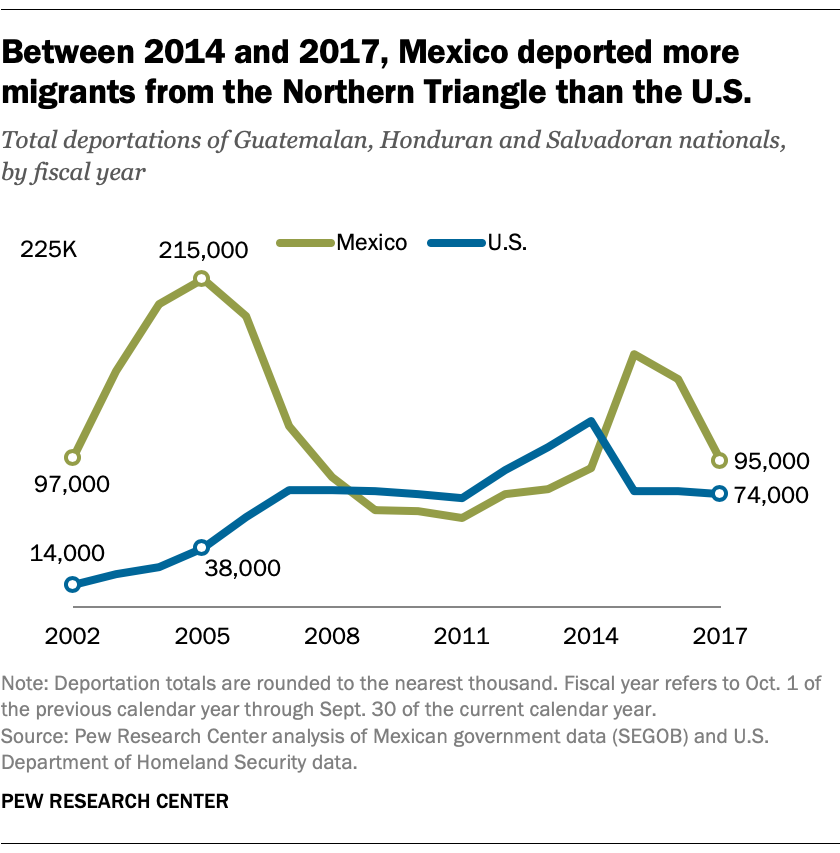
Mexico has apprehended and deported more migrants within its borders so far this fiscal year than at the same point in fiscal 2018, though the totals remain well below levels recorded in other recent years, according to a Pew Research Center analysis of data from Mexico’s office for population and immigration statistics.
The migrants apprehended and deported are individuals who failed to present valid immigrant documentation in Mexico. They largely come from the same three Central American countries that have driven a surge in migration at the southern border of the United States in recent months: El Salvador, Guatemala and Honduras.
President Donald Trump has called on Mexico to do more to reduce the flow of migrants into the U.S., threatening to impose tariffs against America’s southern neighbor unless it broadens its effort to curtail the number of Central American migrants that reach the U.S.-Mexico border. Amid the escalation in tensions, here’s a look at how current migrant apprehension and deportation patterns in Mexico compare with past trends:

Mexican authorities apprehended nearly 92,000 migrants in the first seven months of fiscal 2019, up 32% from the same period the previous year. Still, this year’s total remains below the 141,000 apprehensions made during the same period in fiscal 2006 (when the U.S. also experienced a surge of non-Mexican immigrant apprehensions at the southern border). It’s also far below the number of southern border apprehensions made by the U.S. government during the first seven months of fiscal 2019.

People from the Northern Triangle – El Salvador, Guatemala and Honduras – make up 85% of migrants apprehended in Mexico so far in fiscal 2019. Migrants from these countries have historically accounted for the most apprehensions in Mexico, but their share so far in the current fiscal year is the lowest in nearly two decades — 10 percentage points lower than in 2002, when they made up 95% of all apprehensions in Mexico.
Mexican authorities have apprehended 43,000 migrants from Honduras so far this fiscal year, accounting for almost half (47%) of the total. The number of apprehended Honduran immigrants is up 63% over the same period in fiscal 2018. There have been fewer apprehensions of both Guatemalan (25,000) and Salvadoran (10,000) migrants in the first seven months of fiscal 2019, however.

The Mexican government deported 67,000 migrants in the first seven months of the current fiscal year, an increase from the prior year but far below other recent years. In the first seven months of fiscal 2006, for example, Mexico deported 135,000 migrants, double the number recorded so far this fiscal year.
In the first seven months of fiscal 2019, Mexico deported 35,000 Honduran nationals, 22,000 Guatemalans and 7,000 Salvadorans. Together, the Northern Triangle nations account for 96% of all deportations from Mexico so far this year, which is consistent with their share since 2002, the first year with available data.

In recent years, Mexico has deported more Northern Triangle nationals than the U.S. In fiscal 2017, the most recent year with data for both countries, Mexico deported 95,000 people from El Salvador, Guatemala and Honduras, while the U.S. deported 74,000. Between fiscal 2002 and 2017, Mexico deported nearly 1.9 million people from these three nations, while the U.S. deported 1.1 million. The largest difference during that period occurred in fiscal 2005, when Mexico deported around 176,000 more immigrants from the Northern Triangle than the U.S. did.


